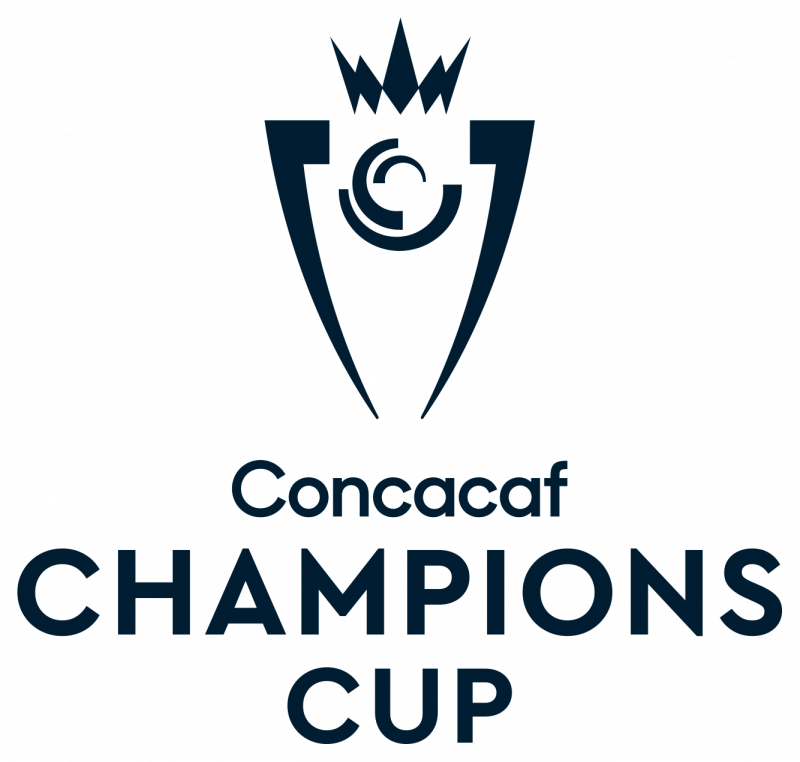The CONCACAF Champions Cup is an annual international club football competition organized by CONCACAF. It is the premier club tournament for teams from North America, Central America, and the Caribbean. The winner of the Champions Cup earns automatic qualification for both the FIFA Club World Cup and the FIFA Intercontinental Cup, adding further prestige to the competition.
1962: Inaugural Edition of the Tournament
In 1962, the inaugural edition of the tournament was held.
1964: Tournament Not Held
The CONCACAF Champions Cup was not held in 1964.
1965: Tournament Not Held
The CONCACAF Champions Cup was not held in 1965.
1966: Tournament Not Held
The CONCACAF Champions Cup was not held in 1966.
1971: Expansion of the Champions' Cup
In 1971, the runners-up of a few North American leagues began to join the competition, expanding it to include round-robin group phases and more teams.
1981: Combining North and Central American zones
From 1981, the North and Central American zones were usually combined, meaning that the winner of the joint zone would face the winner of the Caribbean zone in the final.
1993: Qualification for the Final Round
From 1993 to 1996, three clubs from the North/Central American zone and one club from the Caribbean zone qualified for the final round of the tournament, which was held in a central location.
1996: Qualification for the Final Round
From 1993 to 1996, three clubs from the North/Central American zone and one club from the Caribbean zone qualified for the final round of the tournament, which was held in a central location.
2001: Tournament Not Held
The CONCACAF Champions Cup was not held in 2001.
2002: Introduction of Home-and-Away Format
In 2002, the CONCACAF Champions Cup switched to a home-and-away format, after being hosted in a central location with single-leg ties.
2003: Expansion to 16 Teams
In 2003, the CONCACAF Champions Cup consisted of 16 teams, with twice as many qualifying from each zone.
2005: Entry to FIFA Club World Cup
Since 2005, the champion of the competition gained entry into the FIFA Club World Cup, increasing interest and participation.
2006: Proposal to Develop Larger Champions League
At their November 2006 meeting, the CONCACAF Executive Committee decided to "act upon" a proposal at their next meeting by the CONCACAF Secretariat to develop the CONCACAF Champions' Cup into a larger "Champions League" style event.
November 2007: Details of Champions League Expansion Reported
In November 2007, the CONCACAF Executive Committee reported some of the details of the planned expansion into a Champions League style event.
2007: End of UNCAF Interclub Cup
In 2007, the UNCAF Interclub Cup was ended after the expanded Champions League tournament meant that Central American clubs would qualify directly.
April 2008: Last Eight-Team Champions' Cup
In April 2008, the last eight-team Champions' Cup format was used as planned.
August 2008: Expanded 24-Team Champions League Begins
In August 2008, a newly expanded 24-team Champions League tournament was conducted.
2008: Rebranding to CONCACAF Champions League
In 2008, the CONCACAF Champions Cup was rebranded as the CONCACAF Champions League, becoming the premier club competition for North America, Central America, and the Caribbean.
2008: Start of CONCACAF Champions League Re-branding
In 2008, the CONCACAF Champions League was re-branded, employing the group stage format that was eliminated in 2018.
2008: Name Change to CONCACAF Champions' Cup
Prior to 2008, the tournament was called the CONCACAF Champions' Cup.
May 2009: Conclusion of expanded Champions League tournament
In May 2009, the newly expanded 24-team Champions League tournament, which started in August 2008, concluded.
2009: Replacement of Real Esteli
In 2009, Real Esteli of Nicaragua failed stadium requirements and was replaced by another team for the 2009–10 and 2010–11 seasons.
2010: Replacement of Teams due to Stadium Requirements
In 2010, Real Esteli of Nicaragua and the qualifying team from Belize were replaced by other teams because they failed to meet the stadium requirements.
January 12, 2012: Announcement of New Tournament Format for 2012-13
On January 12, 2012, CONCACAF announced that the 2012–13 tournament would be played under a different format than previous editions, where the preliminary round is eliminated and all qualified teams enter the group stage.
2012: Tournament Format Prior to 2012-13
Prior to the 2012–13 season, the tournament involved four groups of four, with one Mexican team and one U.S. team in each group. A preliminary round was used to reduce the number of teams from 24 to 16.
2014: Title Sponsorship by Scotiabank
From 2014–15, Scotiabank became a title sponsor of the Champions League.
2014: Replacement of Belize Team
In 2014, the qualifying team from Belize failed stadium requirements and was replaced by another team in each season from 2009–10 through 2014–15.
April 2015: CONCACAF Champions League match attendance record
On 8 April 2015, Mexican side Club América broke the all-time CONCACAF Champions League match attendance record when a reported 66,208 spectators gathered at the Estadio Azteca in Mexico City to watch América play Costa Rican club Herediano in the second leg of the semifinals of the 2015 edition of the tournament.
December 2016: Discussion of New Tournament Format
In December 2016, Manuel Quintanilla, president of the Nicaraguan Football Federation, spoke of a possible new format for the competition, which was later corroborated by Garth Lagerwey, the general manager of Seattle Sounders FC.
January 2017: Confirmation of New 16-Team Format
On 23 January 2017, CONCACAF confirmed a new 16-team format for the competition beginning with the 2018 edition.
2017: Introduction of CONCACAF League
In 2017, a new secondary tournament called CONCACAF League was introduced, where the winner would qualify for the following year's Champions League.
2018: Tournament Format Prior to 2018
Before 2018, the tournament had a group stage from August to October and a knockout phase from March to May, with 24 teams in eight groups and the knockout phase determined by aggregate goal differential.
2018: Implementation of New 16-Team Format
In 2018, the CONCACAF Champions League implemented a new 16-team format, eliminating the group stage.
2018: Introduction of New Trophy Design
In 2018, the current trophy design was introduced for the CONCACAF Champions Cup trophy.
2018: Retention of All-Knockout Format
In September 2021, CONCACAF announced an expansion of the tournament to begin in 2024. The tournament will retain the all-knockout format used since 2018 but will now consist of five rounds and 27 teams participating.
2018: Elimination of Group Stage
Prior to the 2018 edition, the CONCACAF Champions Cup moved to a knockout format, eliminating the group stage that had been present in previous editions.
2019: Away Goals Rule Change for Final Round
Beginning in 2019, the away goals rule would not be applied for the final round of the CONCACAF Champions League.
2019: Expansion of CONCACAF League
For the 2019–20 competition cycle, the direct Central American berths were removed, and CONCACAF League was expanded so that the top-six clubs would qualify to Champions League.
February 2021: Announcement of Tournament Overhaul
In February 2021, CONCACAF announced a major overhaul of the tournament which would have included 50 teams and a regional group stage. However, this format was abandoned and never used.
May 2022: Seattle Sounders FC match attendance record
On 4 May 2022, the Seattle Sounders FC surpassed the attendance record set in April 2015 at Lumen Field in the final against Pumas UNAM with an announced attendance of 68,741.
2022: Discontinuation of CONCACAF League
In 2022, the CONCACAF League would also cease with this new format.
June 2023: Reverting to CONCACAF Champions Cup
On 6 June 2023, it was announced that to coincide with the new format, the competition had been renamed back to CONCACAF Champions Cup.
2023: CONCACAF Champions League Reverted to CONCACAF Champions Cup
In 2023, the CONCACAF Champions League reverted to its original name, the CONCACAF Champions Cup.
2023: End of Title Sponsorship by Scotiabank
Scotiabank was a title sponsor of the Champions League from 2014–15 until 2023.
2024: Pachuca wins the CONCACAF Champions Cup
In 2024, Pachuca won the CONCACAF Champions Cup after defeating Columbus Crew in the final.
2024: Expansion of the Tournament
In September 2021, CONCACAF announced an expansion of the tournament to begin in 2024. The tournament will retain the all-knockout format used since 2018 but will now consist of five rounds and 27 teams participating.
2024: Increased Prize Money and FIFA Club World Cup Qualification
Starting with the 2024 edition of the competition, the winning club will receive over US$5,000,000 in prize money and financial distributions. In addition, the winning club qualifies for the FIFA Club World Cup, which includes additional prize money.
Mentioned in this timeline

Seattle is the most populous city in Washington state and...

FIFA the F d ration Internationale de Football Association is...
Canada is a North American country the second largest in...
Mexico officially the United Mexican States is a North American...
Liga MX is the top-tier professional football league in Mexico...
Belize is a Central American country located on the northeastern...
Trending

36 minutes ago Official Pokémon LEGO Sets Launch Worldwide on Pokémon Day 2026!

36 minutes ago Scream 7 Premiere Sees Protests After Melissa Barrera's Firing; Cast Reunites.

36 minutes ago Stock market plunges after PPI inflation data; Dow, S&P 500, Nasdaq decline.
37 minutes ago US advises embassy staff to leave Israel amid Iran strike threats, urging speed.

37 minutes ago IndyCar Season Opens in St. Petersburg: O'Ward and Palou in Focus.

37 minutes ago Norah O'Donnell Back on CBS Mornings, Highlights Women in 'We the Women'
Popular

Jesse Jackson is an American civil rights activist politician and...

Barack Obama the th U S President - was the...

Susan Rice is an American diplomat and public official prominent...

XXXTentacion born Jahseh Dwayne Ricardo Onfroy was a controversial yet...

Michael Joseph Jackson the King of Pop was a highly...

Kashyap Pramod Patel is an American lawyer who became the...
